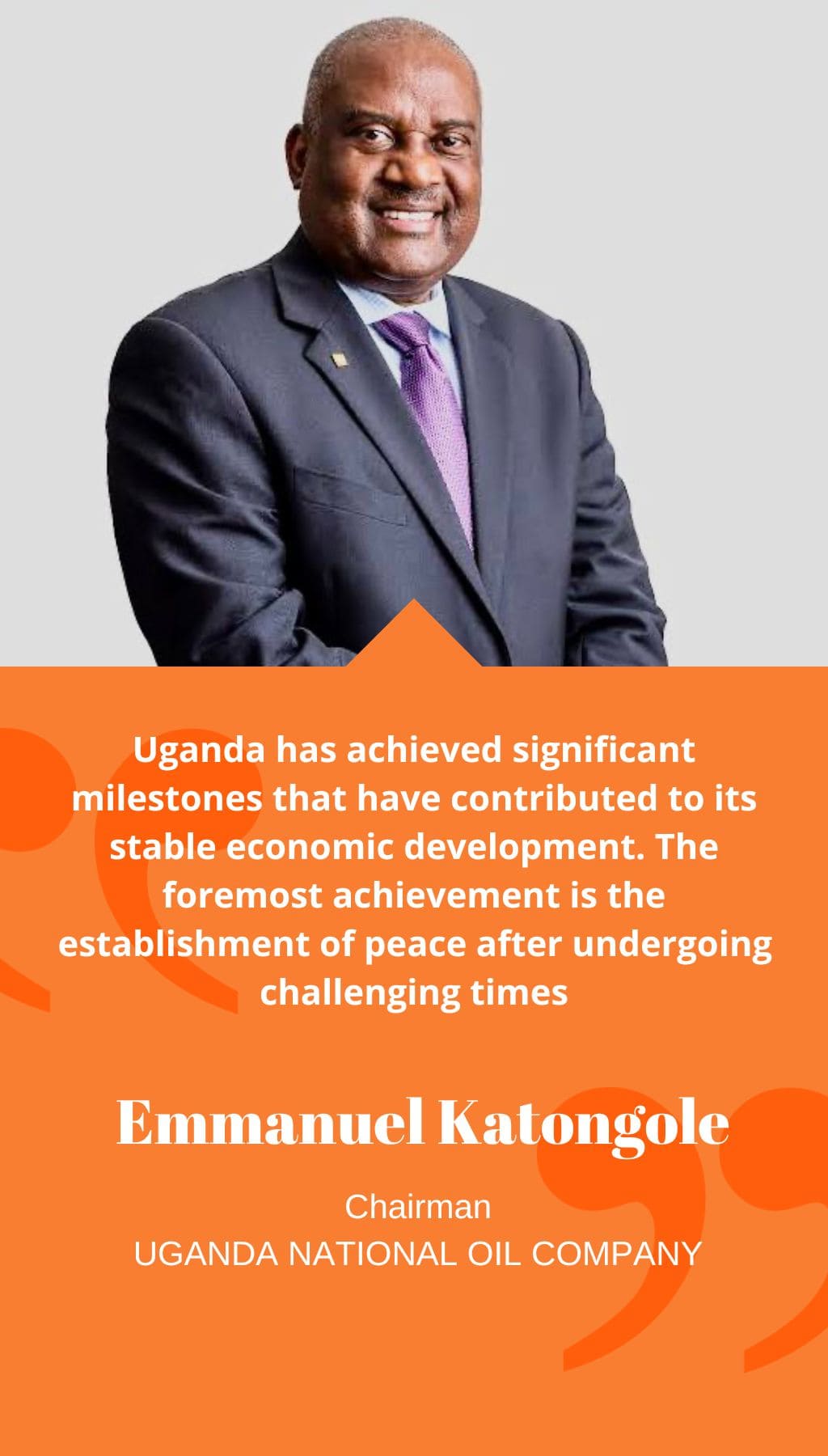
- Uganda | 26 November 2021

What key milestones has UNOC achieved since its establishment in 2014?
Since its establishment, UNOC has marked several key milestones. The company was formed in 2015 under the Companies Act of 2012, with the Ministry of Energy and Mineral Development holding a 51% stake and the Ministry of Finance, Planning and Economic Development holding the remaining 49%. UNOC was designed to operate with the flexibility of a private company, free from public-sector bureaucracy. It oversees two subsidiaries: the National Pipeline Company, which manages pipelines and storage terminals, and the Uganda Refinery Holding Company, responsible for refinery and petrochemical businesses and the management of petro-based industrial parks.
How is UNOC involved in upstream operations?
UNOC is actively involved in the upstream segment of the oil and gas industry. The company holds a 15% state interest in the production licenses for the Tilenga and Kingfisher projects. UNOC has partnerships with TotalEnergies in the Tilenga oilfields and with CNOOC in the Kingfisher oilfields. Despite being a relatively young company, UNOC is making progress in exploration activities. They have submitted an independent application for the Kasuruban block and are in the final stages of securing a production-sharing agreement. Furthermore, UNOC is working on a joint application with CNOOC for the Pelican-Crane block. These initiatives aim to expand UNOC’s exploration capabilities and strengthen its position in the industry.
What midstream projects is UNOC currently working on?
UNOC has a significant stake in the East African Crude Oil Pipeline (EACOP) project, holding a 15% share alongside partners TotalEnergies, CNOOC, and Tanzania Petroleum Development Corporation. Through its subsidiary, the National Pipeline Company, UNOC actively participates in the project and seeks to bring value while learning. They have secured funding for their involvement and play a crucial role within the leadership team of the EACOP company. Additionally, UNOC is deeply involved in the development of a refinery. They aim to hold a 40% share in the project and contribute to the structuring and commercial negotiations. UNOC’s focus on refining and marketing petroleum products aligns with the high demand in the local market and neighboring countries.
How is UNOC building its downstream capacity?
UNOC has three projects in the downstream sector. The Jinja storage terminal, operated in partnership with One Petroleum Uganda Ltd, is already operational with a capacity of 30 million liters. UNOC plans to expand its operations to include lake transport by constructing a jetty at Lake Victoria and a connecting pipeline to the terminal. The Kampala Storage Terminal, a key strategic project, will serve as a distribution hub for refined products from the refinery and cater to the local and regional markets. UNOC has made significant progress on this project and is currently in the process of identifying a partner. Additionally, UNOC undertakes bulk trading as a business to contribute to the security of petroleum product supply in the country.
How does UNOC prioritize environmental and social aspects?
UNOC places great importance on environmental and social aspects, as well as good governance. The company ensures that its commercial approach addresses environmental concerns, recognizing the global push for green energy. UNOC believes that clean energy and poverty alleviation can coexist through innovative and technologically advanced practices in the oil and gas industry. They are committed to reducing emissions impact on the environment and actively engage in sustainable initiatives such as tree planting.
What challenges does UNOC face in growing its market share?
One of the challenges faced by UNOC is access to affordable financing. As a state-owned enterprise, funding from the national treasury is necessary, but it competes with other demands. UNOC is exploring alternative financing options to complement the efforts of the treasury. Another challenge is market access, considering the volatility of global oil and gas markets. External factors such as conflicts and geopolitical tensions can influence market conditions. However, UNOC is focused on building a resilient team that can effectively navigate challenges and turn them into opportunities.
What major milestones have contributed to the stable development of the Ugandan economy?
Uganda has achieved significant milestones that have contributed to its stable economic development. The foremost achievement is the establishment of peace after undergoing challenging times. Over the past 20 years, the country has transformed into a peaceful and stable nation, laying a foundation for progress. Another significant milestone is the adoption of a free-market-driven economy, which has encouraged investment and provided a favorable business environment. Additionally, Uganda has made substantial progress in improving literacy rates, recognizing education as a crucial factor in national development. These achievements have played a vital role in the overall growth and advancement of the country.














